How to get started in HR
As in my May 2023 Sustainability HR post, I would like to revisit this relevant topic.
On 05 January 2023, „Directive on corporate sustainability reporting“ (Corporate Sustainability Reporting Directive, short: CSRD) came into force.
It heralded a new era of sustainability reporting.
The CSRD thus replaces the Non Financial Reporting Directive (NFRD), which has been in force in the EU since 2017, and is intended to pave the way for a greener future for the European economy and society. In doing so, sustainability data and its importance will be successively raised to eye level with financial data. The CSRD enshrines the concept of double materiality, and requires more detailed information on sustainability targets and metrics.
It is also important to know the frameworks on which CSRD is built and which have relevance for HR:
Sustainable Developement Goals (SDGs)
The UN Sustainable Development Goals were presented at the World Summit on Sustainable Development in New York in 2015 and adopted by the UN.
All 193 member states of the UN and thus almost all states in the world have ratified them. There are 17 goals with over 150 concrete sub-goals. For the first time, a common roadmap until 2030 has been agreed to ensure prosperity and health for all people, taking ecological issues into account.
The SDGs are comprehensive and companies are also called upon to make their contribution to achieving the goals.
Since the goals are to be achieved by 2030, they are also called Agenda 2030.
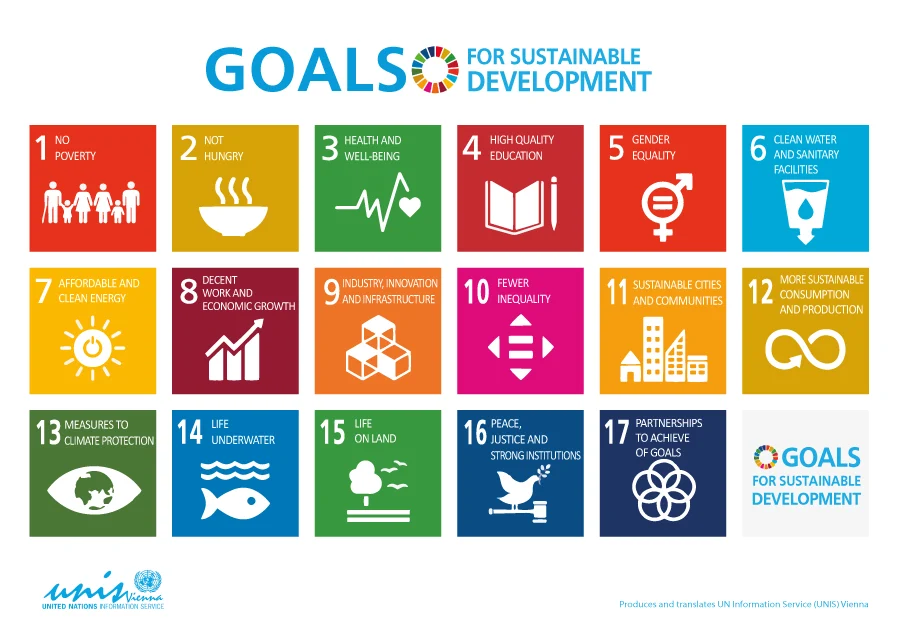
The following examples have relevance for human resource management
.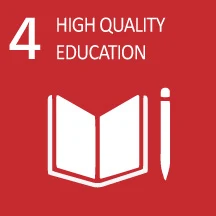
SDG 4: Quality education.
4.4 By 2030, substantially increase the number of youth and adults who have the appropriate skills, including technical and vocational skills, for employment, decent work and entrepreneurship.
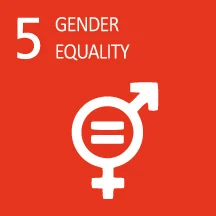
SDG 5: Gender Equality.
5.5 Ensure the full and effective participation of women and their equal opportunities to assume leadership roles at all levels of decision-making in political, economic and public life.
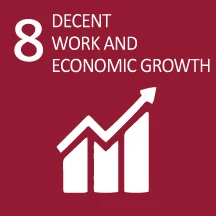
SGD 8: Decent work and economic growth.
8.7 Take immediate and effective action to eliminate forced labor, end modern slavery and human trafficking, and ensure the prohibition and elimination of the worst forms of child labor and end all forms of child labor by 2025.
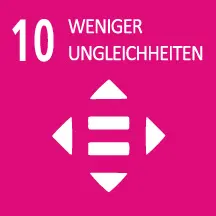
SDG 10: Reduce inequalities.
10.3 Ensure equality of opportunity and reduce inequality of outcomes, namely by eliminating discriminatory laws, policies, and practices and promoting appropriate legislative, policy, and other measures in this regard.
It is impossible to deal with all SDGs equally. To prioritize the SDGs, the entire value chain of the company is considered. The question per SGD is:
What impact does our company have on the respective SDG?
Paris Climate Agreement
At the 21st UN Climate Change Conference in Paris in 2015 (COP 21 = Convention on Climate Change, 21st Conference), 197 countries agreed on common goals:
- Limit global warming to well below 2 degrees C.
- No further pollution of the atmosphere by greenhouse gases in the second half of the century
- Help for the poorest countries to cope with the damage caused by climate change
- Regular review of targets in all countries
European Green Deal
The European Green Deal aims to transform the EU economy for a sustainable future, with the following objectives:
- Mobilising research and promoting innovation
- Zero-pollutant target for a pollution-free environment
- Conserve and restore ecosystem and biodiversity
- „From farm to table“: a fair, healthy and environmentally friendly food system
- Accelerate the shift to sustainable and intelligent mobility
- Energy- and resource-saving construction and renovation
- Mobilising industry for a clean and circular economy
- Supply of clean, affordable and secure energy
- Ambitious EU climate change targets for 2030 and 2050
- Financing the transition
- Leaving no one behind (just transition)
Which companies are affected by CSRD?
Corporate Sustainability Reorting Directive (CSRD).
Due to these EU requirements, the number of companies that fall under it increases drastically. The changes relate to the scope of disclosure and the shift from voluntary to mandatory disclosure.
It is therefore crucial for all affected companies to deal with the issue as quickly as possible.
In Germany, approximately 15,000 companies will be subject to the CSRD by 2028; in Europe, approximately 50,000 companies will be affected. The gradual introduction depends on the size and capital market orientation of the company.
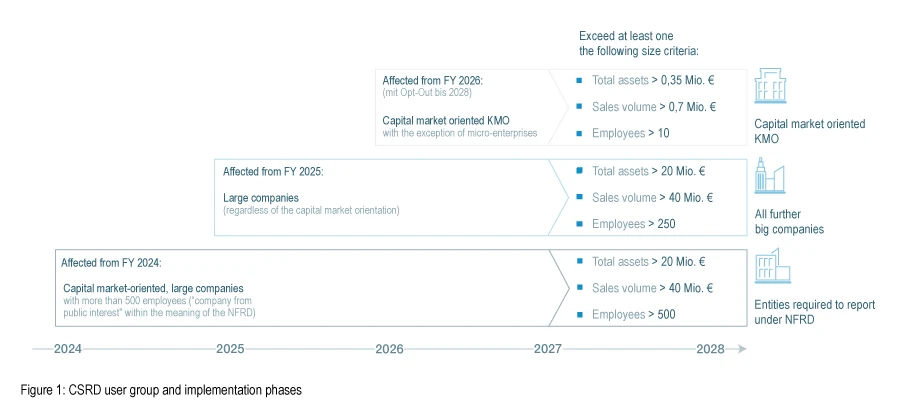
Why sustainability is important in a company!
As Erich Kästner said: „There is nothing good unless you do it“ There is a lot of talk, but what is really done? To get into action, you need good reasons. Companies today are challenged enough with bureaucracy, changing challenges and crises, and a shortage of skilled workers.
Why it makes sense to deal with sustainability in addition to fulfilling reporting obligations:
- The company increases its attractiveness as an employer
- Employee motivation increases
- Potential savings in costs and emissions are realised
- Risks are analysed
- Opportunities for growth and competitiveness are created
- Innovations are promoted more strongly
- The company’s reputation is enhanced
- It is a prerequisite for access to the capital market
- The attractiveness for investors increases
- The company makes a contribution to the common good
What relevance does sustainability/ESG have for human resource management?
This includes, for example, the following topics:
- Training and qualification
- Long-term succession planning, especially for key positions
- DEI issues (Diversity, Equity, Inclusion)
- Gender pay gap
- Occupational safety and health promotion in the workplace
- Reconciliation of family and work
- Fair pay and qualification opportunities
- Employee participation
- Values-based leadership at eye level
- Respect for human rights
- Prevention of corruption and bribery,
- Sustainability and social responsibility for applicants as a decisive criterion for choosing an employer.
- Sustainability in employer branding as a decisive competitive advantage
We recommend HR to be proactive and to examine together with Legal:
- To what extent is the company affected by the new reporting requirements?
- What data situation is to be created on the part of HR in order to fulfil these?
- What digital and organisational infrastructure is necessary for this?
How can implementation work in the HR sector?
HR has another design role here, which starts with an authentic goal photo.
Answering the following questions, analysed and developed in a kick-off workshop, leads us to this goal photo and to your strategic sustainability goals.
Which HR goals can be derived from the sustainable corporate strategy?
What measures would need to be put in place to achieve the goals?
What could your realistic target picture look like?
Which topics do you already offer?
What is the degree of maturity of the above-mentioned elements?
Are they of sufficient quality or do they need to be optimised?
7 steps to successful sustainability management
Many companies have recognised sustainability as an important success factor and are addressing it strategically in connection with their core business.
But where is the best place to start?
How can sustainability be integrated in one’s own company?
How can the necessary transformation be ensured?
Clarify motivation and ambition
Define ambitions and ensure commitment of top management!
Define sustainability team
The following structures have been established:
Steering group - Core team - Expert groups - Working groups
Materiality analysis
Identification of the essential issues
Organisations have limited financial, human and technical resources. Focusing on selected issues allows for better allocation of investments and resources and more effective management of the issues to achieve maximum benefit.
Integration into the strategic framework
The so-called "licence-to-operate" of a company, i.e. its legitimacy, is not set in stone. As sustainability is no longer a "nice-to-have", but is increasingly expected by stakeholders.
Derive goals and measures
Formulate short-, medium- and long-term goals at the level of functions and areas, which are cascaded down step by step.
Measures must be defined to ensure that the goals are achieved.
Define and collect key figures
Companies should focus on selected, measurable indicators that are relevant to management and whose collection effort is acceptable. In order to ensure comparability, the external and internal indicators should be coordinated.
Anchoring sustainability in the company
Long-term success can be ensured through integration into existing management processes. The development of a sustainable corporate culture will only succeed if managers and employees orient and align their behaviour and working methods to the sustainability goals.
How does it work?
My cooperation partner Andrea Engelien and I will be happy to support you in developing your sustainability strategy for HR. Andrea Engelien worked in industry as an SVP for over 20 years. With her company BESONNEN WIRTSCHAFTEN she enables companies and organisations to build and live sustainability as a professional business competence.


We work with you on how to integrate sustainability aspects into your corporate values and derive your HR strategy from this – for sustainable people management!
Contact me and my team, we are here for you and your employees!
Yours, Helga Jungnickl
The next article in our series on current HR topics is all about „Action plan for implementation of sustainability goals for companies and especially for HR departments“.
Follow us – your HR experts for the Allgäu!
For more than 10 years as a self-employed consultant in HR consulting for medium-sized companies.
Consulting & Solutions
Berliner Str. 17 b
86825 Bad Wörishofen
#sustainableHR #nachhaltigespersonalmanagement #nachhaltigkeit #nachhaltigespersonalmanagement #sustainablility #HRTrends #Nachhaltigkeit #ESG #Controlling #CSRD #Coaching #Organisationsentwicklung #HR Management #Personalmanagement #Personalwesen #Recruiting #HRBusinesspartner #HRinterimmanagement #HRBeratung


